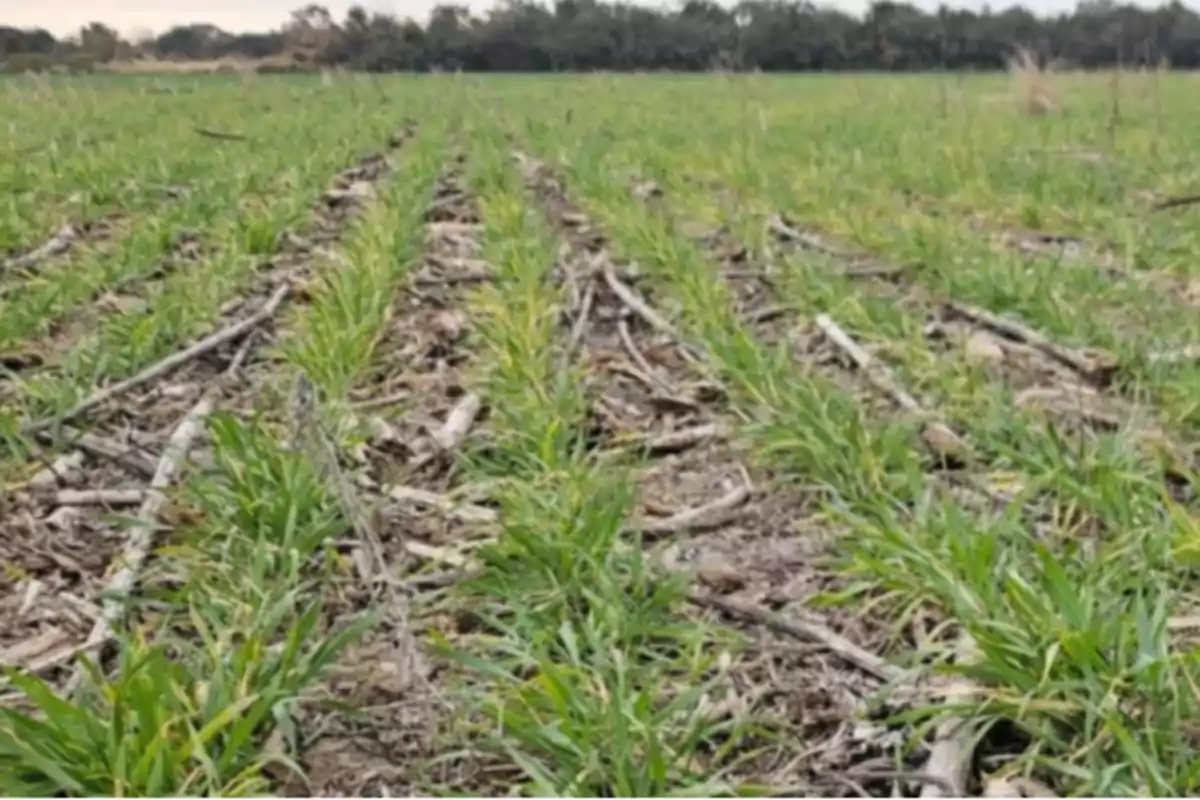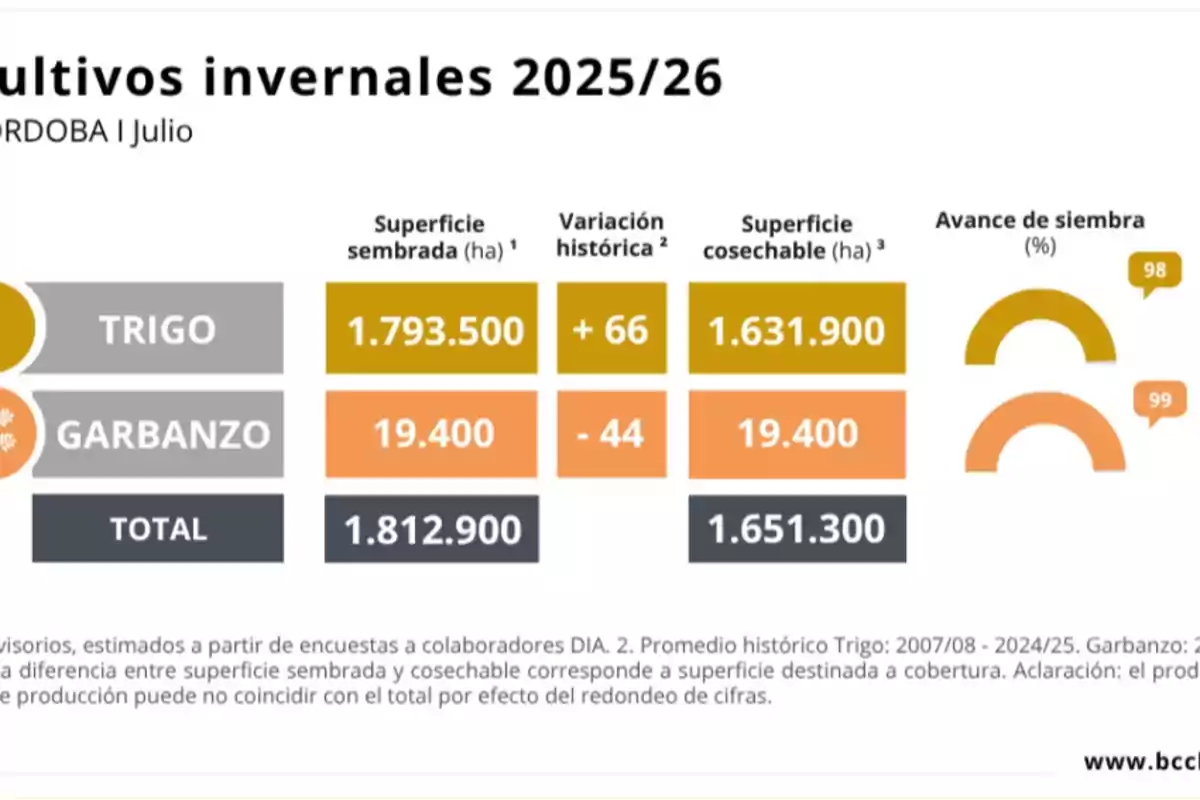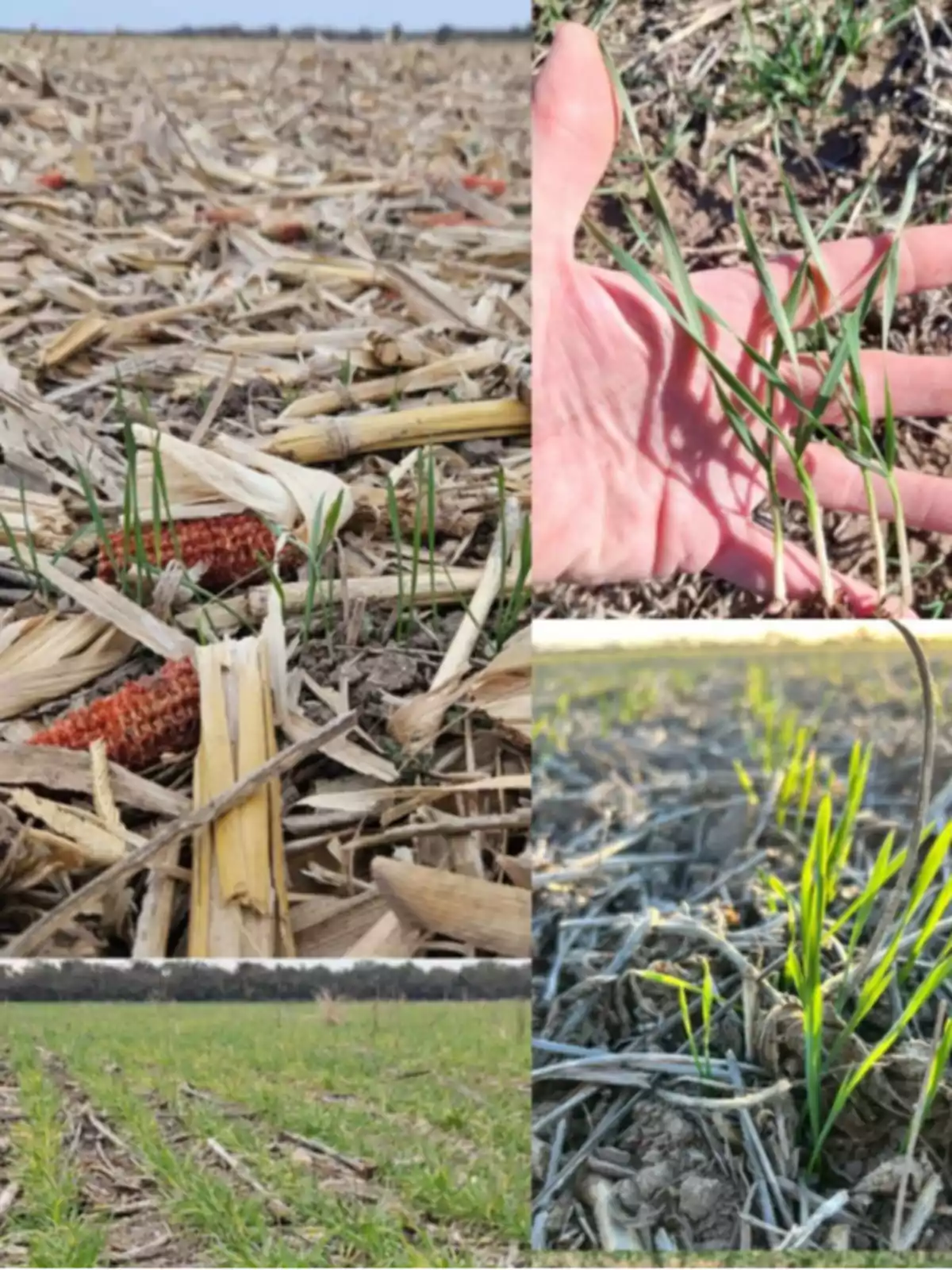
Córdoba: cold weather and scarce rainfall affect winter crops
A report from the local Grain Exchange indicates that during the first half of July, the development of wheat and chickpeas is going through a complex initial stage
Scarce rainfall and cold weather are affecting winter crops in Córdoba.
According to a report from the local Grain Exchange, during the first half of July, wheat and chickpea development in Córdoba is going through a complex initial stage, affected by severe frosts and accumulated water deficit.
Future progress will depend on weather conditions. Even so, most fields are reported to be in good to very good overall condition, according to the organization.
Wheat is estimated to cover 1,793,500 hectares, 66% more than the historical average; and chickpea covers 19,400 hectares, 44% less than average.

Severe frosts recorded between late June and early July were the main limiting factor for the development of both wheat and chickpea. Both crops showed symptoms of cold damage, slowed growth, phenological delay and, in some cases, leaf yellowing, even in fields with good initial establishment.
Scarce rainfall affected wheat and chickpea in Córdoba
Scarce precipitation also negatively affected the crops. In wheat, there were reports of poor establishment, irregular emergence, and water stress, especially in soils with low retention or where sowing was carried out without adequate moisture in the profile.

In chickpea, although most of the crop was reported under irrigation, there were mentions of effects associated with lack of water in areas without access to this resource. The absence of water recharge in April was identified as a limiting factor for timely sowing under suitable conditions.
In contrast, fields with access to irrigation showed better overall performance in both wheat and chickpea, standing out for good establishment and more uniform development. Despite unfavorable conditions, most fields are reported to be in good to very good overall condition.
The outlook for wheat and chickpea in Córdoba
At this phenological stage, after emergence and before the critical period, cold damage and water stress will not necessarily result in significant yield loss, since both crops still have room to recover if weather conditions are favorable in the coming weeks.
Regarding plant health, no pests or diseases have been observed in chickpea so far. In wheat, meanwhile, a low incidence of green aphid (Schizaphis graminum) was reported.
Córdoba was colder in 2025 than in 2024
Average temperatures in June 2025 were notably lower than in 2024, with differences of up to 7 °C in the southern part of the province; while in the north the difference reaches 5 °C. This marked thermal anomaly coincides with frost damage recorded in wheat and chickpea. As a reference, the optimal average temperature in initial stages is 18°C (64.4°F) for chickpea and 16°C (60.8°F) for wheat.
Average temperatures recorded in June were well below these values, which increases the climate risks highlighted by network collaborators.
More posts: